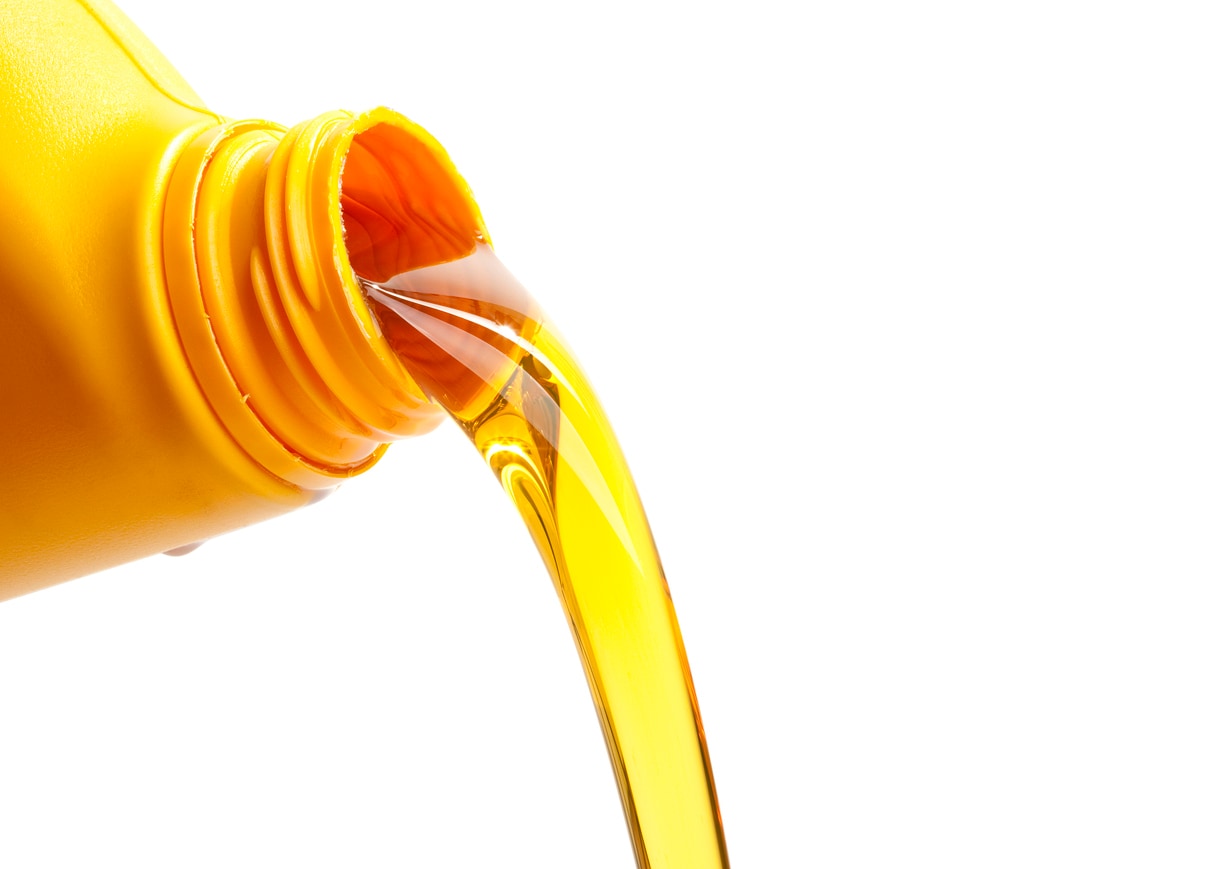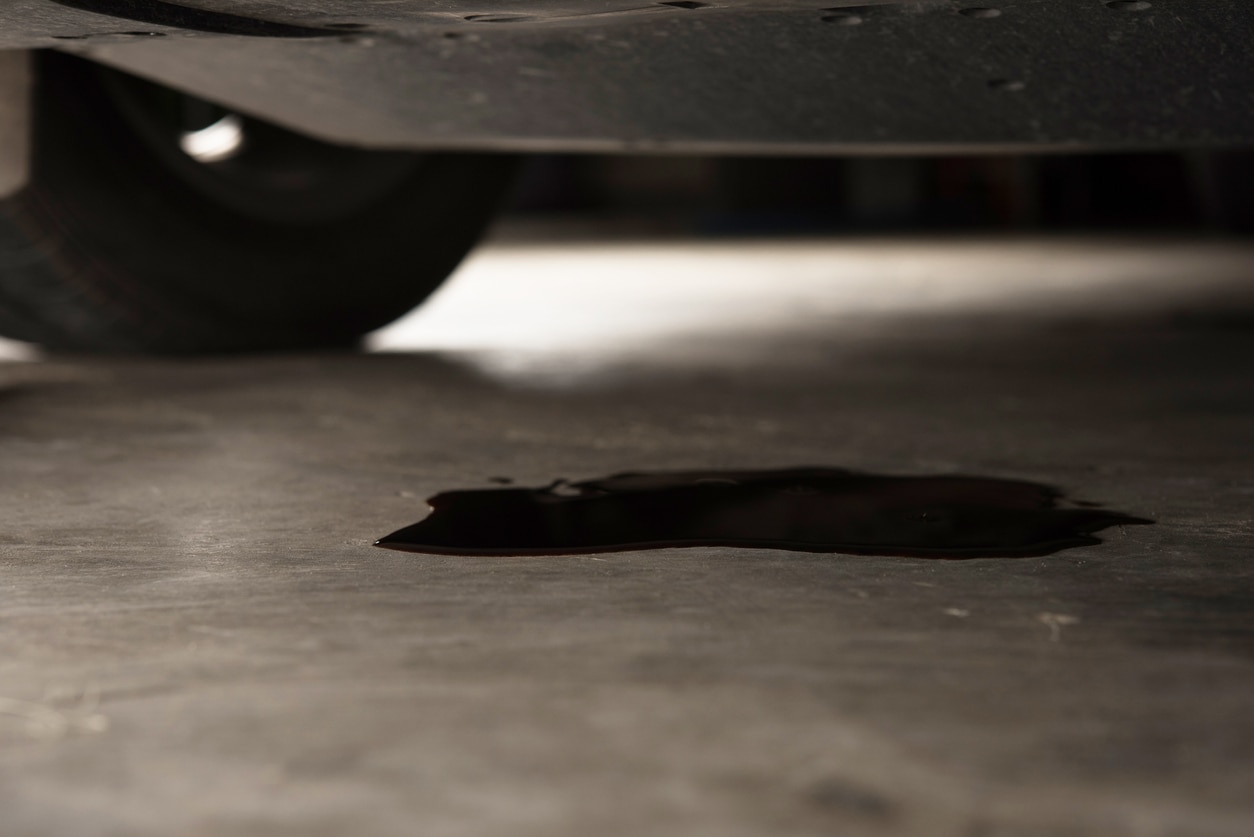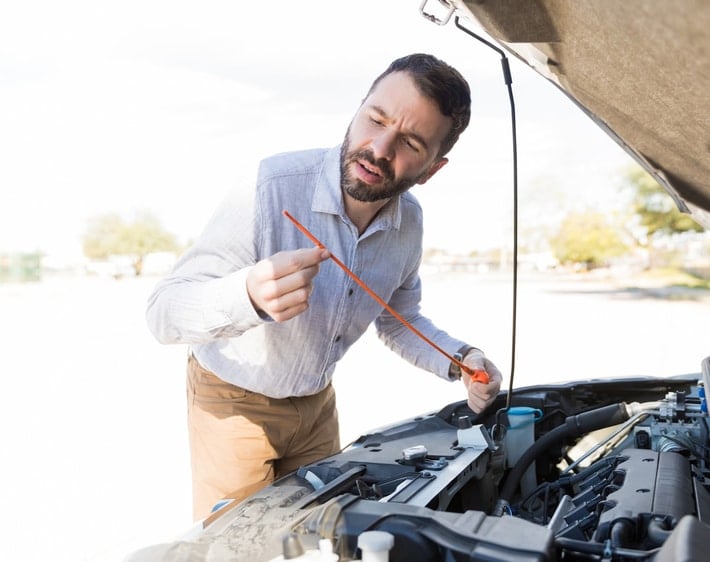Your low-pressure engine oil light has come on, but what does that mean? And what should you do if this happens while you're driving? Learn about loss of oil pressure causes and how to safely navigate the issue if it happens to you.
Symptoms of Low Engine Oil Pressure
Oil Warning Light
If the oil pressure drops below an appropriate level, your sensor may activate your oil warning light on the dashboard. If you see it illuminate, find a safe place to pull over — ideally a parking lot, gas station, or service station — and check your oil level. If the oil level is correct, having it towed to a repair shop is still recommended. The issue may be a faulty oil pressure sensor, or you could have a larger problem on your hands.
Diminishing Engine Performance
If you’re suddenly losing power, stalling out, or burning through your gas tank faster, you may be experiencing diminishing engine performance. While this drop could indicate several automotive issues, a common cause is low engine oil pressure. So, start small and check your oil level to see if you need a simple oil and filter change.
Burning Oil Smell
A burning oil smell could mean your vehicle is leaking oil, and this oil could be hitting the hot surface of a component within your car. The smell typically indicates a leak, which can result in decreased oil pressure. If you’re smelling burning oil while driving, find a gas station or parking lot where you can safely pull over to check your oil level.
Engine Noise
When your engine oil is running low, your engine's components stop receiving the lubrication they need to function properly. Once this happens, you may start to hear clunking, knocking, ticking, or grinding noises coming from your vehicle's engine. In which case, you'll want to get your car serviced by a professional technician ASAP.
Engine Overheating
Engine oil offers lubrication to your engine’s moving parts. Without sufficient oil pressure, your car’s engine will operate with decreased lubrication and increased friction resulting in more heat. Engine overheating can be a complex issue. While it doesn’t always mean low engine oil pressure, low engine oil pressure can lead to an overheating engine. And an overheating engine means wear and stress on your engine components.
What Makes Oil Pressure Drop?
Low Engine Oil
By scheduling regular oil changes, you can avoid low engine oil in the first place. It's important to note that cars can often lose oil due to a series of issues, including loose or leaking filters and worn components. Check oil levels between oil changes to ensure your car isn’t running with less engine oil than it needs. Not sure if your vehicle needs an oil change? Here are six signs you need one now.
Incorrect Oil Viscosity
The wrong oil viscosity, and specifically a lower viscosity than recommended in your car’s owner manual, can trigger the low oil pressure indicator. Lower viscosity oil can produce less resistance to flow, leading to the oil pressure drop. Don’t be fooled, though: a higher viscosity oil isn’t automatically safer. If it is higher than the manufacturer’s recommendation, it can create resistance to flow, leading to poor engine lubrication.
Bad Oil Pump
Problems with your oil pump could be the result of a handful of things, including oil contamination, a clogged oil pick up tube, or improper installation. It’s important to repair or replace the pump immediately if it's bad since the oil pump plays a critical role in distributing oil to your engine's components. Have your Tires Plus technician check to see if the culprit for your pump’s failure is just age and wear or if there is possible contamination, issues with your oil level, or poor oil maintenance.
Dirty Oil Filter
The oil filter is responsible for trapping potentially harmful debris so that it never makes it to your engine. If not changed regularly, it can become too clogged to do its job efficiently. Oil filters also include pressure relief valves which, if the filter becomes clogged, will let oil bypass the filter element and flow freely.
Just before the oil filter clogs enough to bypass the filter media, the oil flow out of the oil filter will be reduced and can reduce engine oil pressure. To avoid low engine oil pressure, make sure your oil filter is changed with each oil change. Every Tires Plus oil change includes an oil filter replacement.
What to Do if You Have Low Engine Oil Pressure
Low engine oil pressure can shorten the life of your engine. Stay ahead of motor oil issues, and visit your nearest Tires Plus for any necessary maintenance and a full-service oil change today!


